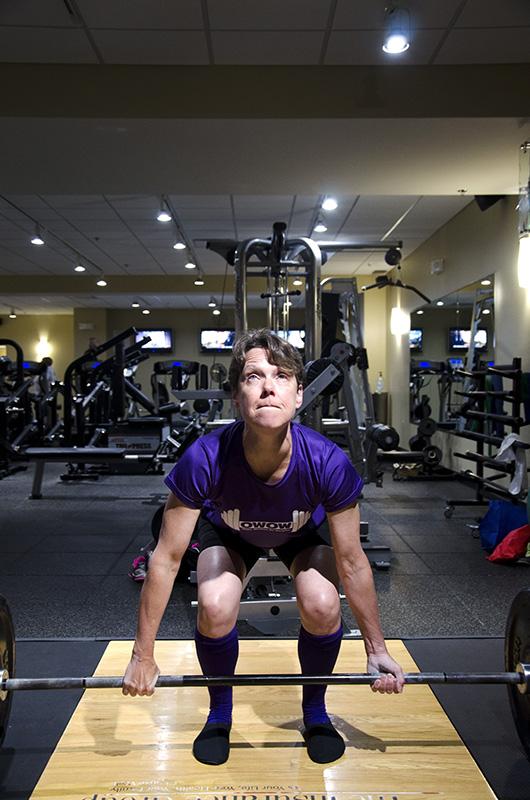It started at Optimus Health, a gym in south Columbia.
Three MU employees worked there: English professor Patricia Okker, nursing professor Louise Miller and Shelly Frazier, an MU Health Care pathologist.
“I saw some of the people at the gym, … but we weren’t really friends,” Okker said. “I’d go to the gym, get my workout in and go home. I didn’t really see it as a pleasurable activity.”
But Okker said that would change. As part of a team called Older Women On Weights, all three women built a bond through powerlifting.
Playing sports most of her life, Frazier, 42, said she began powerlifting in 2009. She was competing with Tom LaFontaine, an adjunct professor and exercise physiologist at Optimus, in a 2012 competition.
Miller was there with LaFontaine’s wife, Linda, for support. That’s when she said the idea hit her.
“(A female competitor) bench pressed 70 pounds. I said, ‘Linda, you can do that right now,’” Miller said.
So they started the team, comprised of 14 women who range in age from 50 to 72.
Miller said she and Linda would recruit women to the team one by one.
“We said, ‘You can do it. Lie down, and we’ll show you how to do it,’” Miller said.
Okker said she joined with little clue of what she was getting into.
“I said yes, though I didn’t really know what powerlifting was at the time,” Okker said. “But it seemed like a fun idea.”
Miller, Okker and Frazier all said they have made great friends through powerlifting.
“We could call anyone of them, and they’d follow through, absolutely,” Miller said. “They’re not just committed to themselves and doing better. They’re committed to the friendships as well.”
Besides the friendships, all three women also said there have been other benefits of powerlifting.
As a teacher, Miller said learning something new like powerlifting helps her better understand her students.
“Being a weightlifter and learning all these new skills is humbling,” Miller said. “Sometimes, as teachers, we do this same thing all the time…. It reminds us that people are new learners, and it brings a little bit better perspective that people don’t get everything the first time.”
Many of the women that compete with the team also have health issues. Miller said she has thyroid disease, and Frazier said she has knee issues.
Powerlifting has allowed Frazier to travel the world. She and Okker both won world championships in Belgium last summer, and she has an upcoming competition in France.
Frazier said the sport has changed some women’s outlook on exercise, and that’s what she loves most about powerlifting.
“People don’t believe me when I say this: … The most fun thing for me has absolutely been seeing the women who started from scratch and by all appearances have no athletic bone in their body and come to the point that they’re excited going to the gym,” Frazier said. “As a physician, that’s very exciting for me.”
Miller said OWOW is not just a team, but a “social club.” They are planning to participate together in a Susan G. Komen Race for the Cure in October, as well as to continue competing in powerlifting events on local and international levels.
Okker said OWOW tend to win because there are no other women in their age and weight class.
However, Frazier said that might change soon.
“Now we’re competing against ourselves, and we actually do have some competition,” Frazier said. “The older women are getting out here and doing this, and that speaks volumes.”








